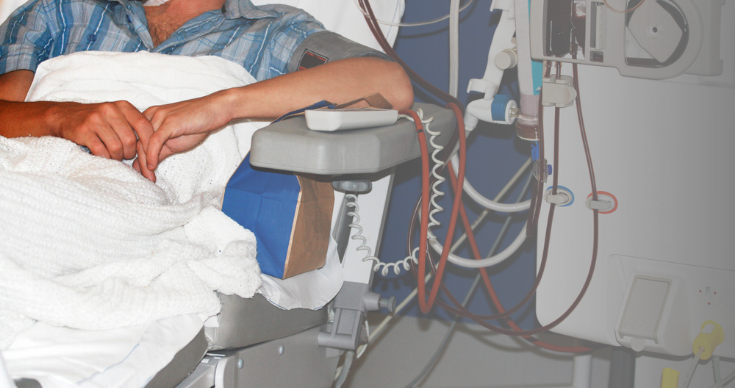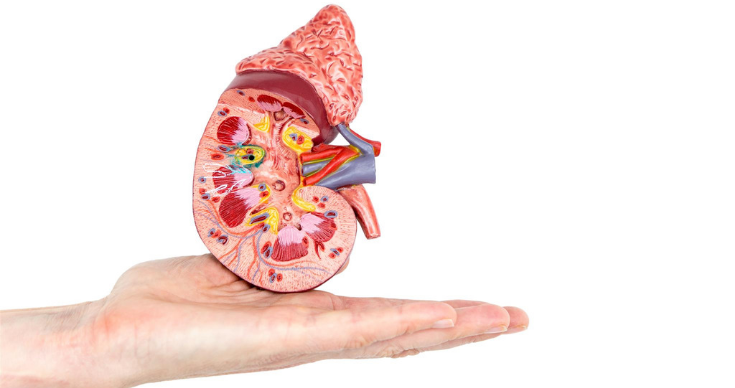How To Prepare For Dialysis – A Patient’s Guide
Kidneys perform the function of purifying the blood, remove excess water and toxins from the body. Dialysis is a procedure that works like artificial kidneys and purifies the blood with the help of advanced machinery. It is done for the people whose kidneys cannot perform its functions anymore.
There are several types of dialysis and it is more common than you might be assuming. However, when a patient is first told that they will need to undergo dialysis, they get scared. Today, we will offer some useful tips regarding how to prepare yourself for dialysis.
Usually, your Dialysis will be done 1 to 4 times a week, and each session takes around 3 to 4 hours. You need to keep the access site clean by washing it before dialysis. Keep your face and access site visible for the staff to keep an eye on, all the time during the process. Dialysis is not generally painful, so while the process goes on, you can be relaxed. You can either read a book/newspaper, watch TV, listen to music or even sleep. Since the machine filters, the blood outside the body and then it is injected back in the body, you might feel cold during the process. So, you can ask for blankets to help you stay warm.
There are some minute complications and side effects that are associated with dialysis. Some occur near the site of injection, these include:
- Bleeding
- Swelling
- Redness
- Tenderness
- Muscle pain
Other side effects are
- Dizziness
- Nausea
- Chest pain
- Breathlessness
- Cramps
- High/low blood pressure
After the dialysis, frequent urination and bloating are quite common. You can also feel very tired and can have body aches. You may need to take rest for the rest of the day as well.
Dialysis can be done at a hospital, doctor’s clinic, pathology center or even at home. However, you and your family members need to have the proper training for the same. Also, it is best to get a doctor or medical staff to oversee the procedure from time to time.
It is quite crucial to ensure that you do not miss your dialysis schedule. However, if you are sick or traveling, you cannot help missing 1 or 2 dialysis sessions. So, in case this happens in your case, don’t forget to inform about the same in advance to your doctor or the team and make arrangements accordingly.
ILS Hospitals offer dialysis facility for the patients suffering from renal damage.
A Brief Introduction To Advanced Renal Transplant
Our body has been designed to perform every crucial function quite effectively. Yet, it is quite normal to rely on medical treatment when our body becomes weak due to some disease or accidental injury. However, only medication cannot always fix every condition on its own. Kidney failure is one such condition that many times require extensive medical attention namely the renal transplant. Let’s understand more about renal failure and advanced renal transplant, as explained by our nephrologists.
Kidneys are a pair of a bean-shaped organ that filters the blood and flushes out the toxins in the form of urine. The kidneys are comprised of tiny filtration units which work so efficiently that even one healthy kidney can perform the overall function. Thus, it becomes quite tricky to detect a renal failure in its early stages. Nephrologists term Renal failure as the condition in which the kidneys lose more than 90% of their ability to function anymore. Renal failure can either happen due to chronic kidney disease or acute kidney diseases. Additionally, factors like chronic high blood pressure, diabetes can also uplift the chances of kidney diseases significantly.
Either way, it requires either regular dialysis or a renal transplant to make long term survival. Kidney transplant is a more preferable solution in comparison to a lifetime of dialysis ahead. Renal transplant is a surgical procedure to transfer a healthy kidney from a donor to a patient whose kidneys no longer performs. This functioning kidney can either be collected from a dead person (cadaveric donor) or from a living healthy donor. Usually, one healthy kidney is adequate to replace 2 failed kidneys. But it is not as simple as it may sound.
Renal transplant is an advanced treatment procedure that requires many prerequisites for it to become successful. Just like blood transfusion, there should be adequate compatibility between the donor and the recipient for renal transplant to work. Moreover, getting a donor often is time-consuming (between a few months to a few years) in case a compatible donor cannot be found on time. In such a scenario, the recipient will have to register their name on a kidney transplanting list, which determines several factors before one can get their scope of renal transplant.
This modern medical marvel has its downside as well. Mild infection, blood clot, and bleeding might arise after renal transplant, but, these can be treated well with mild medication. The main concern related to a renal transplant is organ rejection, in which the body of the recipient rejects the organ. But in some cases, this possibility can be minimized with the help of taking immunosuppressants. So, it is very crucial to carry out this surgery in an advanced hospital under expert nephrologists.
Renal transplant is an advanced medical procedure to ensure the patient with renal failure can lead a healthy life ahead. Through some risks are associated with it, the increasing numbers of success stories are inspiring people to consider this treatment for themselves or their loved ones. For more information regarding kidney diseases, renal failure, and renal transplant, consult with the highly experienced nephrologists at ILS Hospitals.
Kidney – Function and Diagnostic Tests
Kidneys are paired organs that purify the blood, controls body fluid and electrolytes and also process the waste out of the body. It is bean-shaped, of about 4 to 5 inches in length that roughly resembles the size of a fist. It sits beneath the ribs, just behind the belly. It purifies the blood by filtering them, from where it absorbs back the minerals, salts, and water, and removes the waste in the form of urine.
Detecting any kidney illness in its early stage is very tricky as even 10 percent of the functioning kidney does a pretty good job. Thus, only best hospitals can offer a quality diagnosis of the kidney. At ILS Hospitals, we offer the following renal diagnostics for providing a quality treatment for any malfunction of kidneys.
1. Kidney ultrasound
The test is carried out by placing the probe transmitting sound waves over the waist. The sound wave gets reflected from the kidney to cast an image. This can help to find the existence of any stones, lumps, cysts or block in the kidney.
2. Urinalysis
It is a routine visual screening of kidney that can be done both by tools or pathologist himself through a microscope. It can help to detect minute signs of kidney damage such as bleeding, infections, or inflammation etc.
3. Ureteroscopy
It is a kind of endoscopy, specific for screening for kidney and its associated organs. The flexible endoscopic is inserted through the urethra into the bladder and then into the ureters. Even though the endoscope does not reach the kidney itself, it helps to detect any possible complications associated with them.
4. Computed tomography
More commonly known as the CT scan is helpful for diagnosis kidneys as well. The scanner captures the detailed X-ray images of the kidney in a series and it is then fed to the computer to analyze any abnormality in the kidneys.
5. Magnetic Resonance Imaging
More commonly known as MRI uses radio waves and magnetic field to yield a high-resolution image of the kidney to detect any abnormality in it.
6. Kidney biopsy
A fine needle is used to extract a small amount of tissue to observe it under a microscope. It can detect the possibility of malignancy in the kidney.
7. Blood and urine test
A sample of blood and urine is extracted and screened for possible infection and microbial growth.
On this month of March, when we observed World Kidney Day, we, at ILS Hospitals encourage every individual to keep a close eye on their respective renal health.













